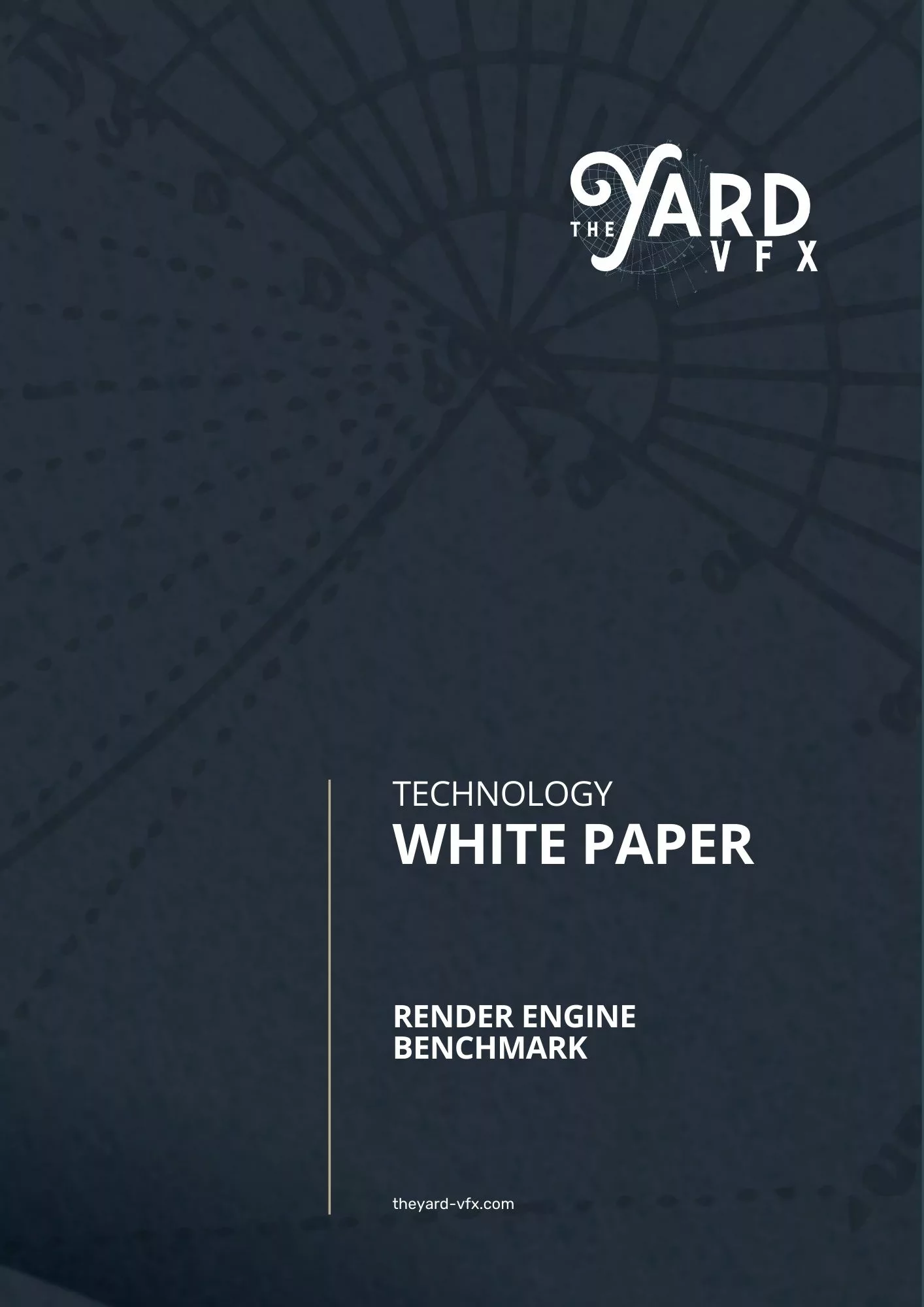
The Yard shares its USD Render Benchmark project with the VFX open-source community to foster knowledge-sharing and encourage contributions that advance USD-based workflows and MaterialX integration.
As an independent VFX studio, The Yard has collaborated on numerous high-profile films and series, consistently delivering complex visual effects that meet the industry’s highest standards. In VFX, a seamless integration between the pipeline and render engine integration is key. The Yard’s team conducted a comprehensive technical audit, evaluating several industry-leading render engines based on key performance metrics like rendering speed, memory usage, and output fidelity.
To standardize and automate this testing process, The Yard developed a custom USD Render Benchmark suite using open-source datasets selected for their complexity and relevance to real-world VFX workflows. Now, the team is excited to share this suite as an open-source project available on GitHub.
What can the USD Render Benchmark do for you ?
The USD Render Benchmark is designed to help you:
- Evaluate Render Engine Performance: Test leading engines such as Arnold, Karma, Renderman, Moonray, and Cycles. The benchmark offers insights into each engine’s rendering speed, memory usage, and output quality, enabling you to make data-driven decisions that fit your project’s needs.
- Test and Optimize Your Setups: Featuring automated tests and open-source datasets, the benchmark allows studios and individual artists to simulate real-world VFX scenarios. From intricate scenes like Disney’s Moana Island to the ALab scene from Animal Logic, the benchmark evaluates engines under demanding conditions to ensure reliability.
- Promote Cross-Engine Consistency: With support for MaterialX, an open standard for materials, the benchmark ensures consistency across different render engines. This reduces time spent troubleshooting material discrepancies, allowing you to focus on creating stunning visual effects.
Key Findings: Challenges and Potential of USD-Based Workflows
The Yard’s audit uncovered several technical challenges and opportunities within USD-based workflows, particularly in the context of Houdini’s Solaris toolset. While USD provides a unified structure for assets, materials, and scene descriptions, certain render engines require specific modifications to integrate properly into the Solaris/Hydra ecosystem, especially those with incomplete Hydra delegate implementations.
Another significant challenge was achieving consistent material representation across different engines using MaterialX. While MaterialX aims to standardize materials, variations in how render engines interpret these properties led to inconsistencies in output.
Despite these challenges, The Yard’s findings underscore the immense potential of USD and MaterialX for the VFX industry. Their use enhances interoperability, flexibility in material definitions, and scalability across projects, making them valuable tools for streamlining production pipelines and enhancing collaboration.
A Call for Open-Source Collaboration
The Yard’s innovation team believes in the power of collaborative development and is inviting studios, developers, and researchers to participate in this project. Here’s how you can get involved :
- Test the Tool: Visit the GitHub repository to try out the benchmark. Run tests using your preferred render engines, share your findings, and help refine the tool.
- Contribute to the Codebase: We welcome feedback and contribution, whether it’s enhancing existing features or optimizing performance. Your input can shape the benchmark’s next evolution.
- Join the Conversation: Engage with the community on rendering techniques, performance optimization, and integration strategies. By contributing, you’ll be part of a broader conversation about the future of USD-based workflows in the VFX industry.
If you’re a developer, artist, or studio professional interested in the latest advancements in USD (Universal Scene Description) workflows, this is an opportunity to dive in, explore, and contribute to a growing open-source community. The Yard aims to empower other studios to perform similar evaluations and refine their workflows, driving improvements and advancements across the industry.
For more information on the methodology and detailed findings, The Yard is also offering a comprehensive whitepaper that you can access here (no email required).
